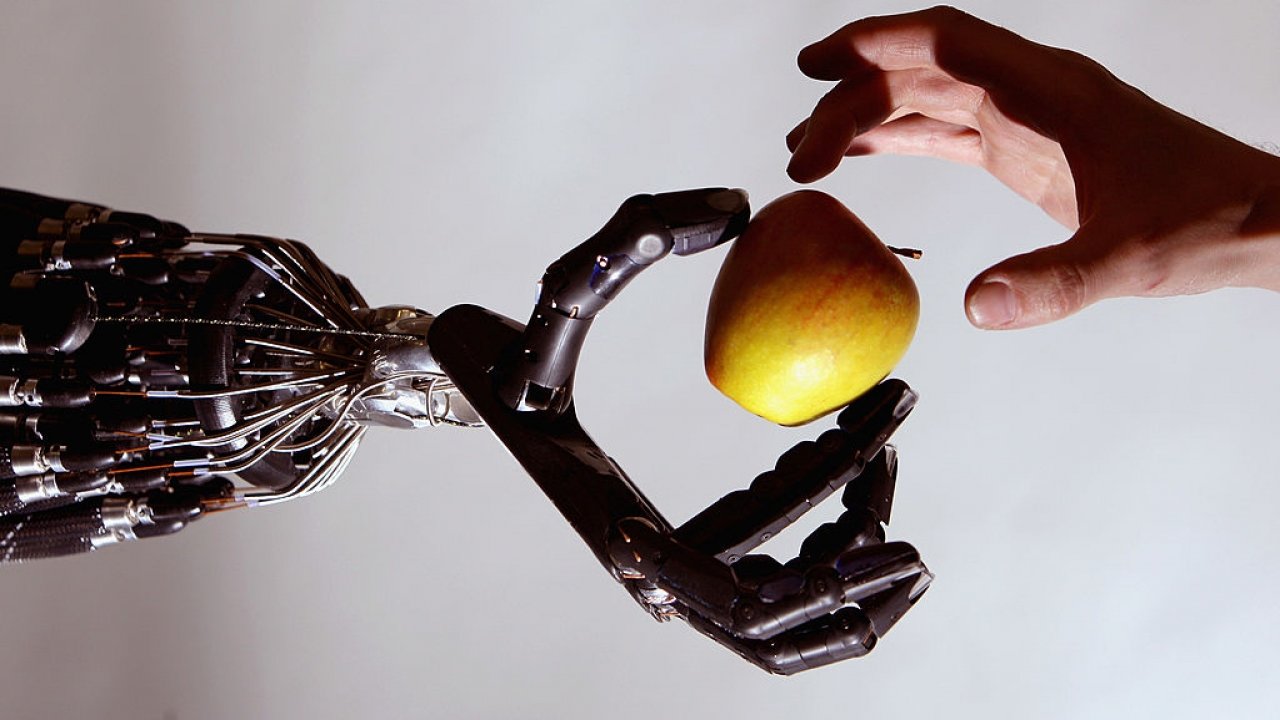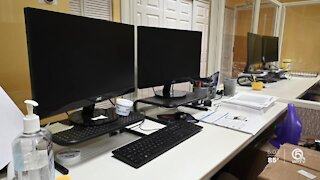Premium Only Content

Machines Will Replace People In The Workplace In The Near Future
We have all seen it in the movies and on television, but did you really think that it will actually happen in real life? It is finally happening! Machines will handle more workplace tasks than people by 2025.
A new report from the World Economic Forum says that's compared to the 71 percent of work tasks that humans are responsible for today. Robots are already heavily involved in the workplace now and will continue to evolve into possibly the number one workforce. They are already performing tasks in industries like the Military, car production, space exploration, medicine, underwater exploration, duct cleaning, crime fighting, oil spill removals and agriculture.
A new report from the World Economic Forum suggests the way people and robots work alongside one another in the workplace will change dramatically in the near future. The WEF predicts that the rise of robotics will result in machines performing more tasks on the job then humans by 2025. Machines already perform better than humans in many positions already. Positions such as stockroom worker, bartender, soldier, pharmacist, farmer, journalist, housekeeper and bank teller are already widely becoming robot jobs instead of human jobs around the world.
It should be looked at that instead of robots taking jobs away from humans, they are handling the mundane tasks that humans don't want to do, which will free up more time for them to do more meaningful jobs. Robots are extremely proficient at tasks that involve extreme repetition, like jobs on a factory line. Leaving these jobs to robots is not only more efficient for a business, but it also alleviates the risk of harm and injury to a person who may end up with pain due to repetitive work. Another benefit of robots in the workforce is that they can take on contact with hazardous materials. Tasks like manufacturing, welding, sanding and polishing can be hazardous to humans but to a robot, there is no risk. And even if there is, robots can be fixed and repaired. That is not always the case for a human who has been injured in the workplace. This also goes for tasks that involved intense labor. Jobs like harvesting in the hot sun all day can cause a lot of harm to a person, however, robots do not feel the heat, or feel exhaustion, making them by far the most valuable employees.
It is also estimated that while that trend could displace 75 million jobs globally by 2022, it will create 133 million new positions. Researchers working on the future of jobs 2018 report surveyed executives from different industries around the world. Aiming to get a look at new technologies like artificial intelligence will affect the global labor force. They expect that some routine-based human held positions will become nonessential in the future, like data entry or payroll clerks. Roles that rely on human skills like sales, marketing and scientific based positions will likely see an increase in demand. The report calls on businesses and government leaders around the world to create a support system for their employees and ensure a smooth transition as the work force evolves.
-
 2:45
2:45
Newsy
2 years agoSupreme Court weighs Google's liability in ISIS terror case
18.5K110 -
 5:36
5:36
WMAR
4 years agoAccenture Technology - Future Workplace Trends
75 -
 3:01
3:01
WKBW
4 years agoTHE FUTURE OF THE WORKPLACE
16 -
 2:00
2:00
WPTV
4 years agoThe future of the workplace
1 -
 1:02
1:02
BANGBizarre
4 years ago $0.03 earnedMicrosoft Mesh will let people 'interact holographically'
118 -
 0:16
0:16
KNXV
4 years agoNCSO: 2 people dead after a plane crash near Winslow
118 -
 8:29
8:29
Billionaires Club
4 years ago $0.11 earned6 Secrets Rich People Are Afraid Poor People Will know (2021)
435 -
 1:14
1:14
Malovabay77
4 years agoPeople Who Love To Skateboard Near You
54 -
 1:07
1:07
AfricanNewsAgency
4 years agoPregnant people will now have access to COVID jabs
1142 -
 1:02:37
1:02:37
The Mike Schwartz Show
19 hours agoTHE MIKE SCHWARTZ SHOW with JACK CIATTARELLI 10-15-2025
2.08K3